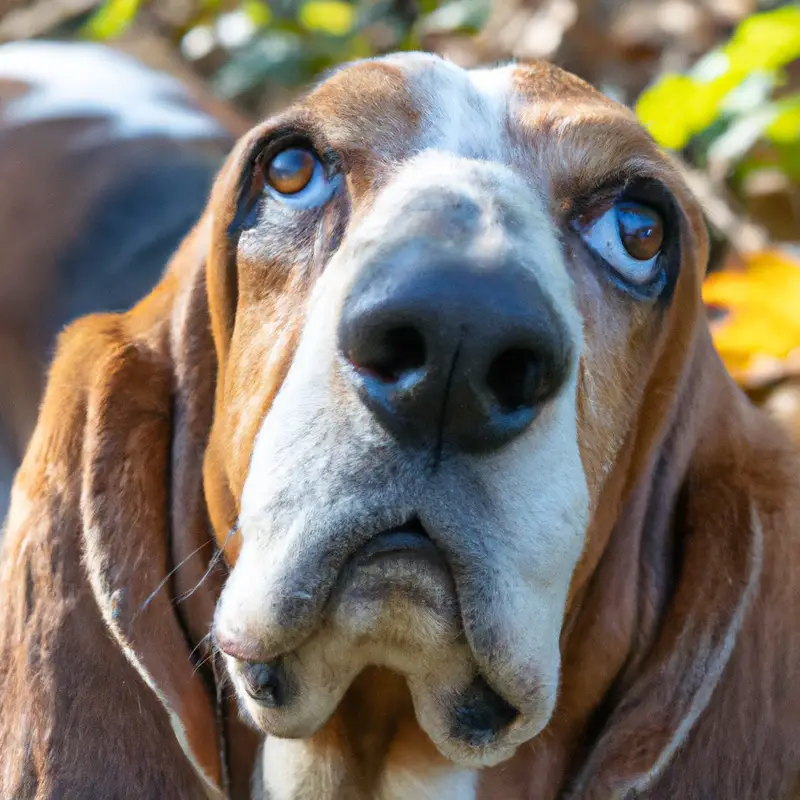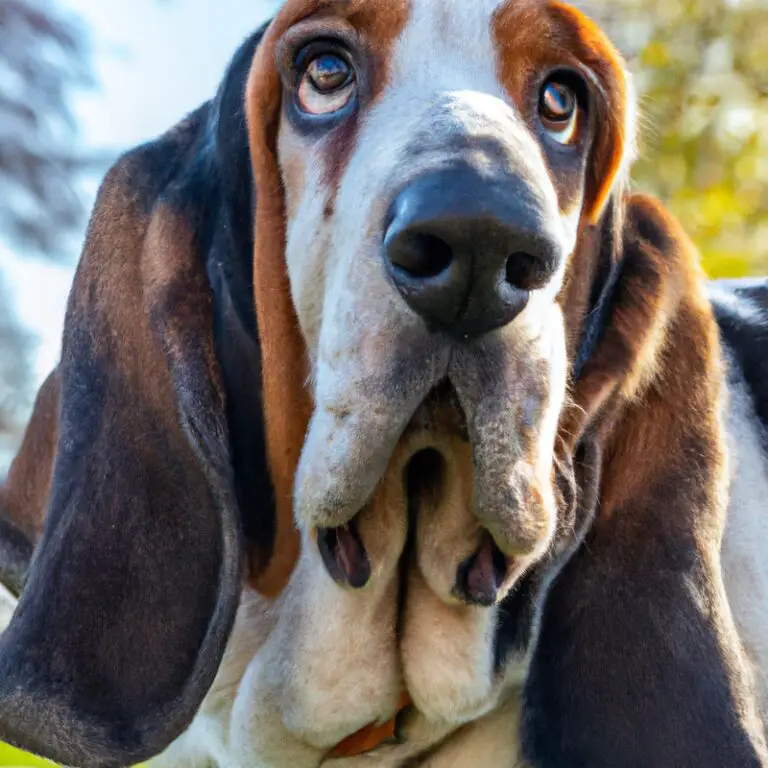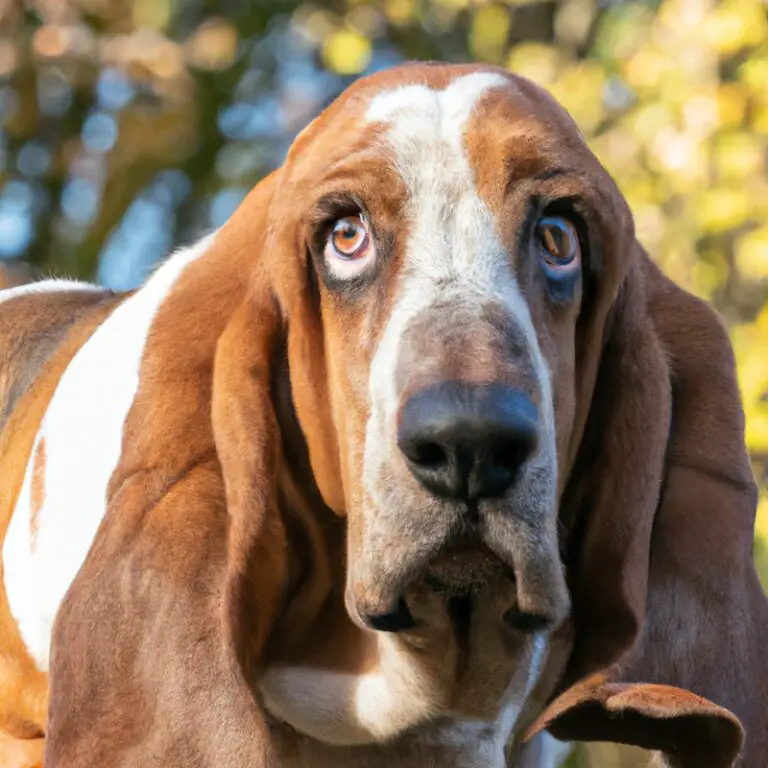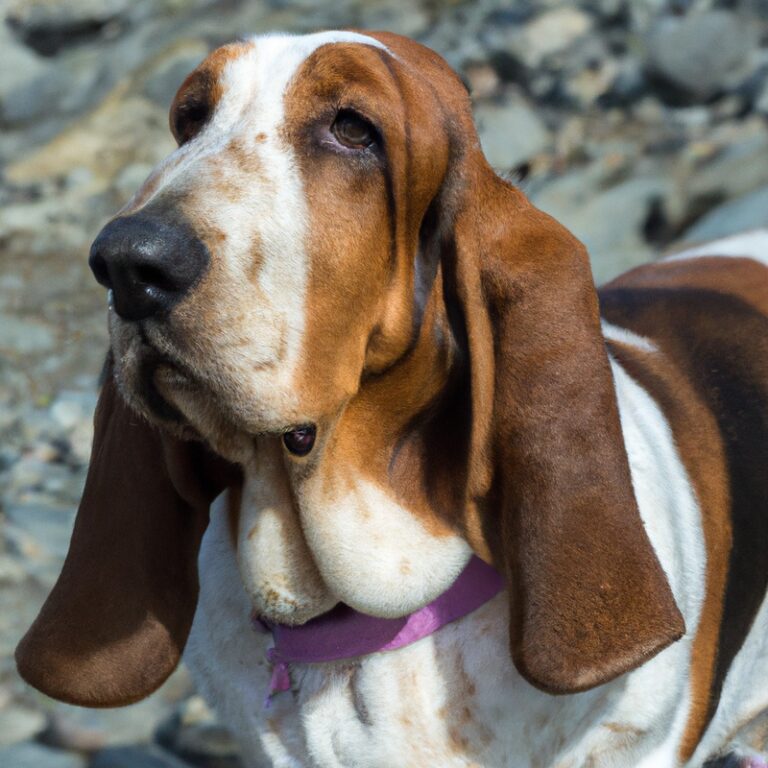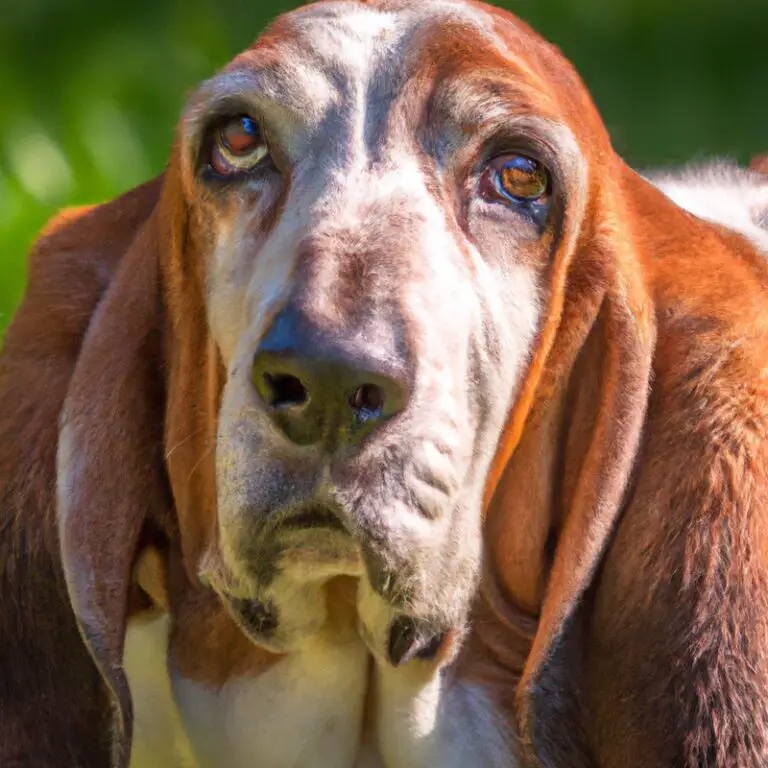How Do Basset Hounds React To Unfamiliar Sounds?
Key Takeaways:
- Basset Hounds may show signs of fear or discomfort when exposed to unfamiliar sounds.
- They tend to have a strong prey drive and may exhibit barking or howling in response to unusual noises.
- Basset Hounds can be sensitive to loud sounds and may seek a safe place to hide or show signs of anxiety.
- Proper socialization and gradual exposure to different sounds can help Basset Hounds feel more comfortable and reduce their reactions to unfamiliar noises.
Have you ever wondered how your Basset Hound reacts when it hears unfamiliar sounds? As a proud owner of two adorable Basset Hounds, I can tell you that their reactions can be quite fascinating! In this article, we’ll explore the basic characteristics of Basset Hounds, their incredible hearing ability, and how they respond to unfamiliar sounds.
We’ll also provide some helpful tips and tricks to create a safe and secure environment for your furry friend.
So, let’s dive in and unravel the mysteries of your Basset Hound’s reaction to unfamiliar sounds!
Understanding Basset Hound Behavior
Basic Characteristics of Basset Hounds
Basset Hounds are known for their distinct appearance, with long ears, droopy eyes, and a heavy build. They have a calm and gentle temperament, making them great companions for families and individuals alike.
These dogs are loyal and affectionate, and they thrive on human interaction.
Despite their somewhat lazy nature, Basset Hounds require regular exercise to stay healthy. They have a strong sense of smell and are known for their tracking abilities.
Basset Hounds are generally good-natured and get along well with children and other pets.
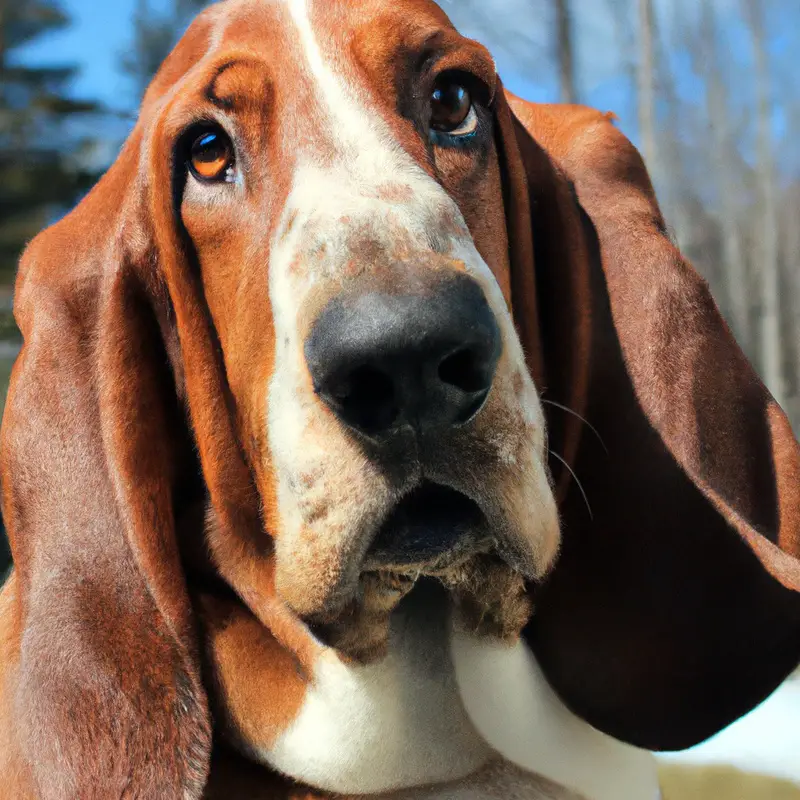
Basset Hound Sensitivity to Sounds
Basset Hounds have sensitive hearing, which means they may react strongly to unfamiliar sounds.
Loud noises or sudden sounds can startle them and cause anxiety.
Their ears are long and droopy, so they tend to pick up more sounds than other breeds.
It’s important to create a calm and secure environment for them and gradually expose them to new sounds in a positive way.
With patience and understanding, you can help your Basset Hound feel more comfortable and confident around unfamiliar sounds.
How Basset Hounds React to Unfamiliar Sounds
Basset Hound’s Hearing Ability
Basset Hounds have an excellent sense of hearing.
Their long ears help them pick up sounds and smells in their environment.
They can hear frequencies that humans cannot and can even detect faint sounds from far away.
This heightened hearing ability allows them to be great hunting and tracking dogs.
However, their sensitive ears also make them more susceptible to loud noises, which can startle or frighten them.
It is important to be mindful of their hearing and provide a calm and quiet environment for them to feel comfortable.
Fear and Anxiety Symptoms in Basset Hounds
Basset Hounds can exhibit fear and anxiety symptoms when exposed to unfamiliar sounds. Some common symptoms include trembling, panting, excessive drooling, hiding, or seeking comfort from their owners.
They may also exhibit destructive behavior or attempt to escape the situation.
It’s important to note that each dog may respond differently, so it’s crucial to pay attention to their individual reactions. Providing a safe and secure environment, gradual exposure to new sounds, and positive reinforcement training techniques can help alleviate these symptoms and build their confidence.
Seeking the help of a professional dog trainer or behaviorist may be beneficial in severe cases.
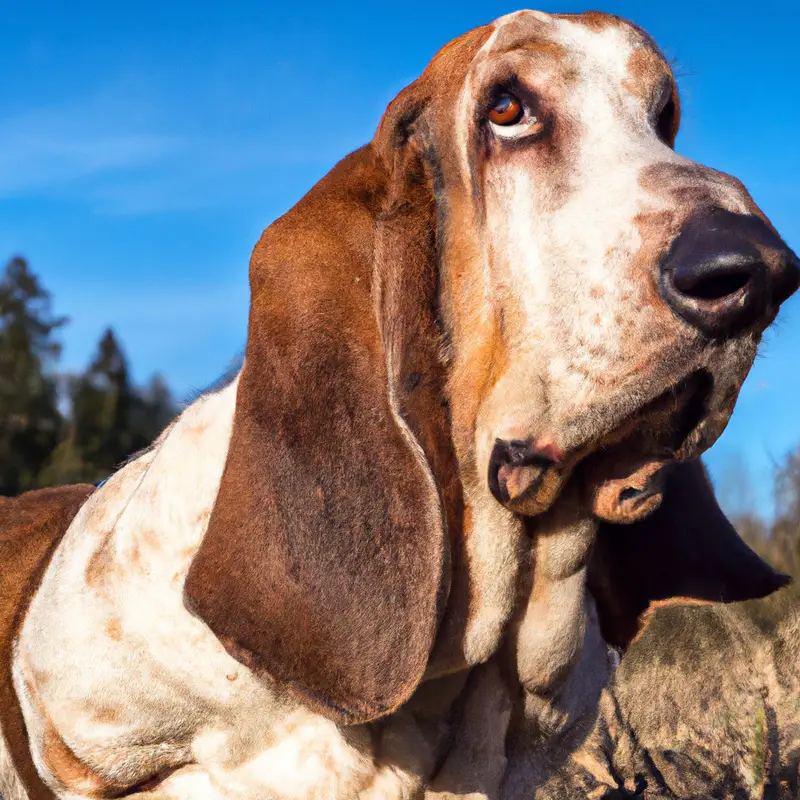
Defensive Responses to Unfamiliar Sounds
When Basset Hounds encounter unfamiliar sounds, they may exhibit defensive responses. These responses can include barking, growling, or even hiding.
It’s important to understand that Basset Hounds have a natural instinct to protect themselves and their surroundings.
They may perceive unfamiliar sounds as potential threats and react accordingly. It’s crucial to provide a safe and secure environment for your Basset Hound and gradually expose them to new sounds in a positive and controlled manner.
Patience and understanding are key in helping your Basset Hound navigate their defensive responses to unfamiliar sounds.
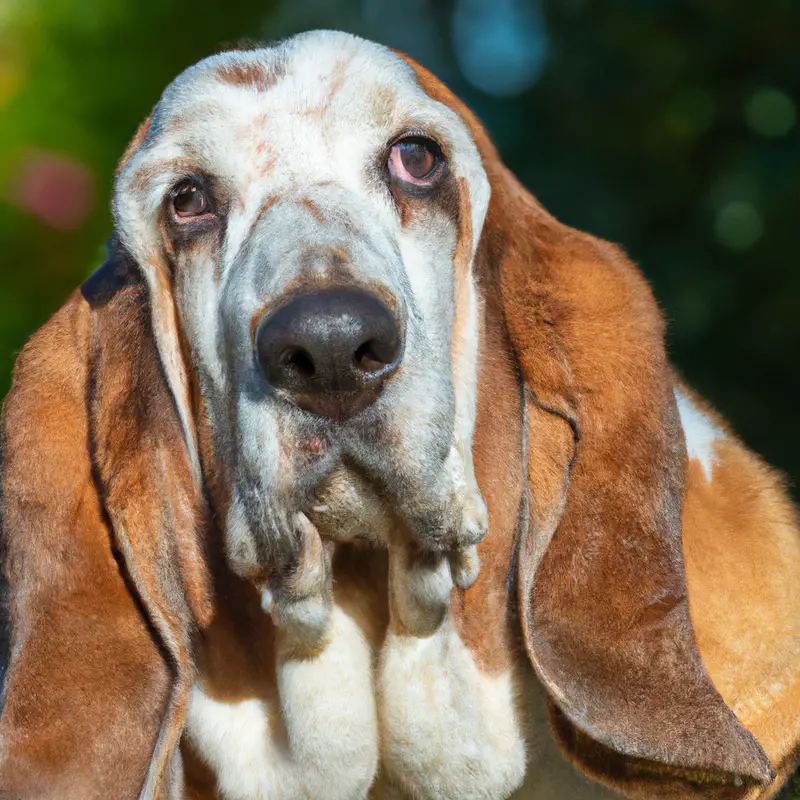
Tips for Helping Basset Hounds with Unfamiliar Sounds
Creating a Safe and Secure Environment
Creating a safe and secure environment is essential for helping your Basset Hound feel at ease with unfamiliar sounds. Here are a few tips to achieve this:
- Provide a quiet and comfortable space for your Basset Hound to retreat to when they feel anxious or overwhelmed.
- Use white noise machines or calming music to drown out unfamiliar sounds and create a soothing atmosphere.
- Secure your home to prevent loud and sudden noises from entering, such as closing windows and doors or using soundproofing techniques.
- Keep your Basset Hound on a leash or in a securely fenced area when outside to minimize exposure to potentially alarming sounds.
- Establish consistent routines to provide a sense of stability and predictability for your Basset Hound, helping them feel more secure in their environment.
By implementing these strategies, you can create an environment that promotes your Basset Hound’s sense of safety and security, making it easier for them to cope with unfamiliar sounds.
Gradual Exposure to New Sounds
Gradual exposure to new sounds is key when helping Basset Hounds adjust. Start by playing recordings of unfamiliar sounds at a low volume, gradually increasing the volume over time.
This allows your Basset Hound to become familiar with the sounds without feeling overwhelmed.
Additionally, associate positive experiences with the new sounds by providing treats or rewards while the sounds are playing. Patience and consistency are essential in this process.
With time, your Basset Hound will become more comfortable and less reactive to unfamiliar sounds.
Positive Reinforcement Training Techniques
Positive reinforcement training is an effective approach for helping Basset Hounds with unfamiliar sounds. Here are some techniques you can use:
- Use treats and praise: Reward your Basset Hound with treats and verbal praise when they remain calm during unfamiliar sounds.
- Desensitization: Gradually expose your dog to the sounds that make them anxious, starting with low volumes and increasing over time. Pair the sounds with positive experiences (like treats to create positive associations.
- Counter-conditioning: Teach your Basset Hound an alternative behavior, such as sitting or focusing on you, when they hear unfamiliar sounds. Reward them for performing the desired behavior.
- Remain calm and patient: Dogs can sense our emotions, so try to stay calm and positive during training sessions.
Remember, every Basset Hound is unique, so be patient and flexible with your training approach. Seek professional help if needed.
Seeking Professional Help for Basset Hound Behavior
Identifying Signs of Behavioral Issues
Identifying signs of behavioral issues in your Basset Hound is important for their well-being.
Here are some key indicators to look out for:
- Excessive barking or growling
- Aggressive behavior towards people or other animals
- Destructive chewing or digging
- Separation anxiety when left alone
- Fear or anxiety in new or unfamiliar situations
- Constant pacing or restlessness
- Changes in appetite or weight loss/gain
- Excessive drooling or panting
If you notice any of these signs, it may be helpful to seek professional help from a qualified dog trainer or behaviorist.
They can assess your Basset Hound’s needs and provide guidance for addressing any behavioral issues.
The Role of a Professional Dog Trainer or Behaviorist
A professional dog trainer or behaviorist plays a crucial role in assisting with Basset Hound behavior. They have the expertise to assess, diagnose, and develop customized training plans for your dog.
A trainer or behaviorist can help address issues related to unfamiliar sounds, fear, anxiety, and defensive responses.
They will teach you effective techniques and provide guidance to create a safe and secure environment for your Basset Hound. By working with a professional, you can gain confidence in handling your dog’s behavior and improve their overall well-being.
The Importance of Patience and Understanding
Building Trust and Confidence in Basset Hounds
Building trust and confidence in Basset Hounds is essential for a happy and well-adjusted dog. One way to build trust is by creating a consistent routine and providing a safe and secure environment.
Patience and understanding are key when it comes to helping Basset Hounds overcome their fears and anxieties.
By using positive reinforcement training techniques and gradually exposing them to unfamiliar sounds, you can help build their confidence. Every Basset Hound is unique, so it’s important to embrace their individual personality traits and work at their own pace.
Embracing Individual Personality Traits
When it comes to our beloved Basset Hounds, it’s important to recognize and embrace their individual personality traits. Each Basset Hound is unique, with their own quirks, preferences, and behaviors.
By understanding and accepting their individuality, we can better meet their needs and provide a loving and supportive environment.
This means being patient with their idiosyncrasies, adapting training approaches to their specific learning style, and celebrating the qualities that make them one-of-a-kind companions. Ultimately, embracing their individual personality traits strengthens the bond between you and your Basset Hound.
Final Verdict
Basset Hounds have a strong sensitivity to sounds, which can trigger fear and anxiety in them.
Their acute hearing ability makes them more prone to being startled by unfamiliar sounds.
It’s important for owners to create a safe and secure environment for their Basset Hounds, gradually expose them to new sounds, and use positive reinforcement training techniques.
Seeking professional help from a dog trainer or behaviorist may also be beneficial.
Ultimately, patience and understanding are key in helping Basset Hounds overcome their fear and build trust and confidence.

